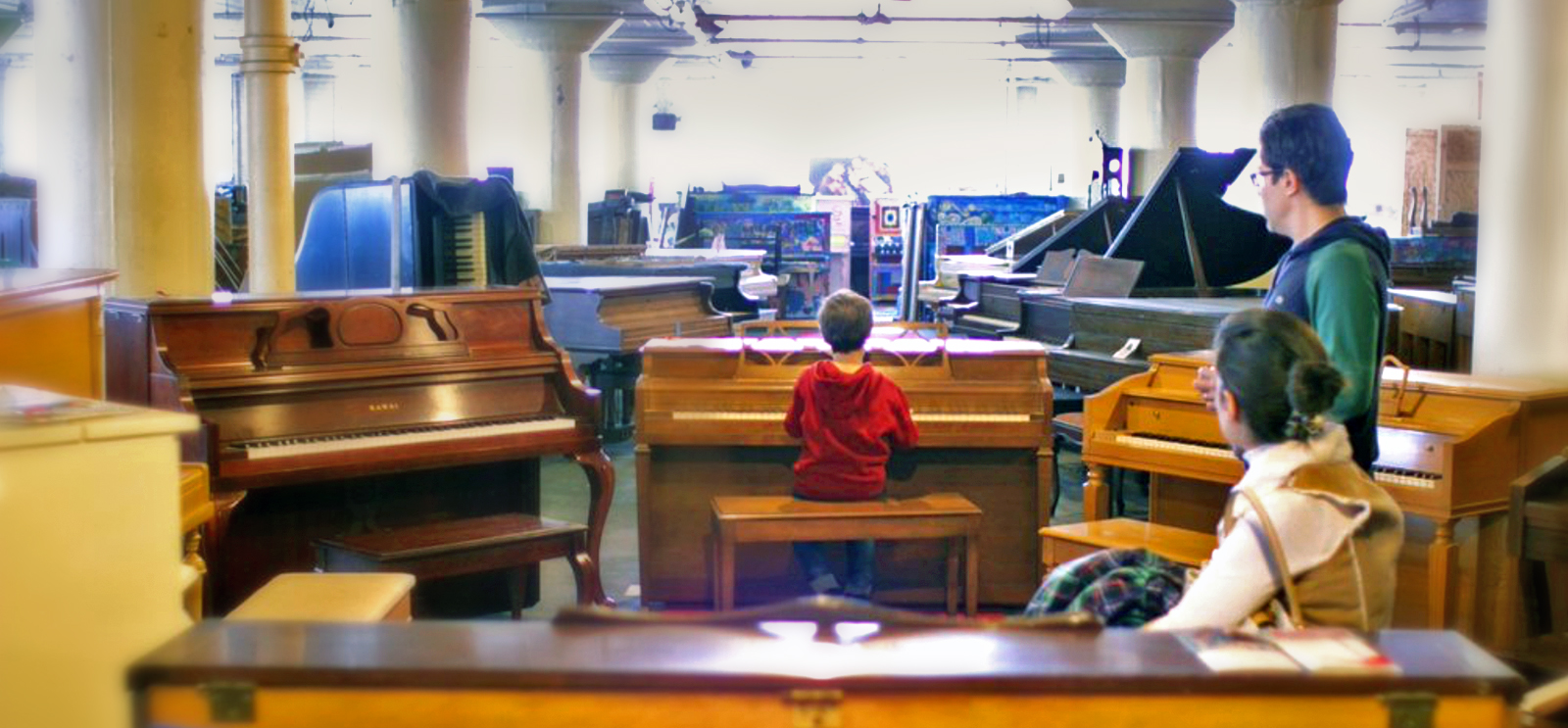
One alum’s thoughts on a creative career.
Having majored in music with a focus on composition, Michael Hwang, AB’15, is well suited to work with fellow artists. “They’ve worked intensely on something,” he says, “And they sort of let me in, and I sympathize because I worked intensely on something for years in college.”
Hwang works for the nonprofit Keys 4/4 Kids, a Minnesota-based organization that sells donated used pianos and, with the proceeds, supports music programs for low-income students. Some of Keys 4/4 Kids’ pianos are placed with low-income families, community organizations, or schools.
[[{"type":"media","view_mode":"media_original","fid":"3557","attributes":{"alt":"","class":"media-image","height":"300","typeof":"foaf:Image","width":"500"}}]](Photography by BrownZelip, CC BY 2.0)
As one of only two full-time employees in the organization’s Chicago office, he sells pianos and organizes local piano donations. But his official title is content director, which means building and maintaining the organization’s website, producing videos and other material for the site, and managing social media. Through his work—for example, creating videos publicizing benefits for Keys 4/4 Kids—he’s fallen in love with documenting and promoting art as well as making it.
His dream ultimately is to become “sort of a one-man design shop” helping to build websites and promote local, up-and-coming artists, though he wants to stay involved with Keys 4/4 Kids.
[[{"type":"media","view_mode":"media_original","fid":"3558","attributes":{"alt":"","class":"media-image","height":"300","typeof":"foaf:Image","width":"500"}}]](Photo courtesy Keys 4/4 Kids)
Here’s what the Magazine learned talking to Hwang about school, work, and living up to expectations:
1.) Be open to chance. (Or, online ads can be more helpful than you realize.)
Hwang and his housemates found Keys 4/4 Kids when they were looking for a used piano on Craigslist. When they visited the warehouse in Chicago’s McKinley Park neighborhood they found a nice upright piano for $149—and one very overworked staffer. “They needed that extra hand, and I just threw my hat in,” Hwang says. He began working there a few weeks later.
2.) One skill can tie it all together.
Hwang drew a lot of inspiration from a composition course with University Professor Augusta Read Thomas, but what “changed the game, hands down,” for him was a digital filmmaking class he took with Department of Visual Arts lecturer Scott Wozniak. Learning to handle a camera, design, shoot, and edit film “activated all of those learnings in the humanities, because I could take it to the market.”
3.) It won’t kill you to put your other passions on hold.
Hwang hasn’t composed any music since graduating, in part because getting his existing work heard by the world takes time. “And I’m totally OK with that,” he says. “I’m totally OK with being patient and riding it out.”
4.) Your parents will come around—eventually.
Hwang knew he wanted to focus on music by the middle of his first year at UChicago. His parents wanted him to study economics. Thus Hwang did what so many young people with creative interests do to appease their practical-minded parents: he lied. Or, rather, he eased his parents into the truth by telling them he was majoring in economics as he took fewer courses in it and more courses in music.
“I had to choose my battle,” he says, “and I chose to fight it over a long period of time—two years. Because you know, they’d check up on me, and I’d be like, ‘Yeah, econ’s going great. Really love music. I’m doing both.’ Then later, it’s like, ‘Hey, I really love music.’”
Now, Hwang says, his parents are “totally stoked” about his career.
